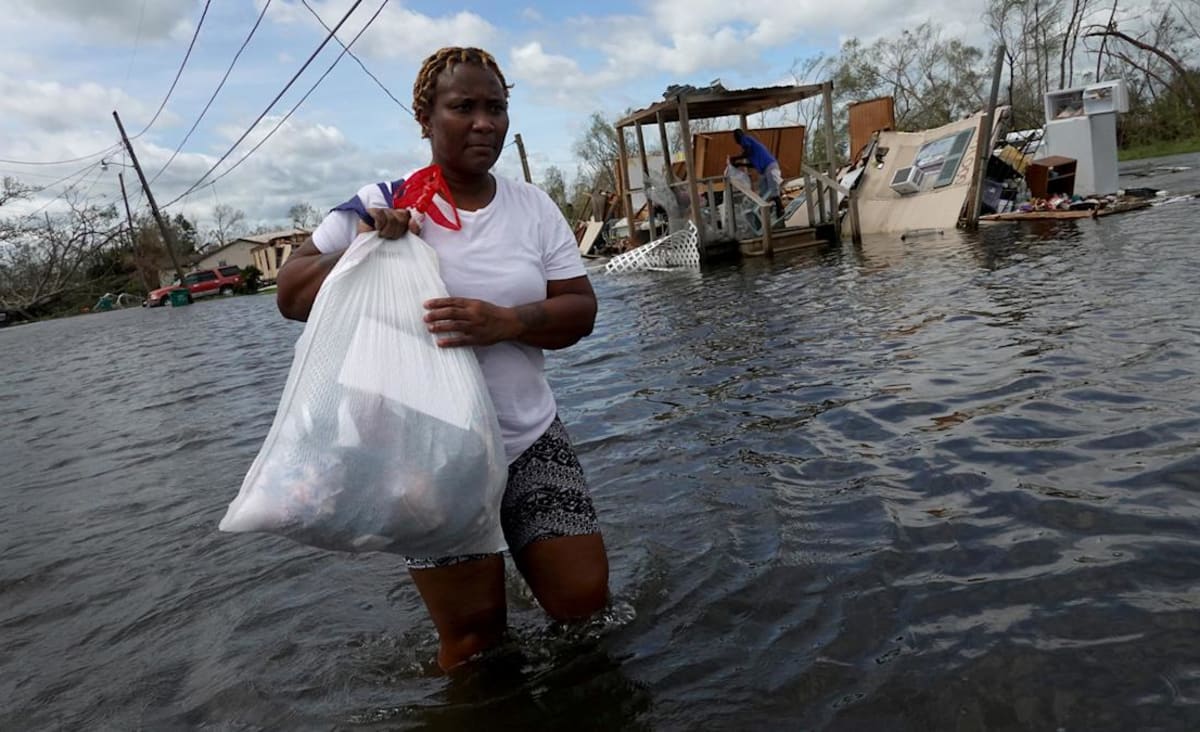
www.yahoo.com
Climate change is causing 'super-extreme' weather events, scientists say
Some climate scientists think a new term for the most extreme weather may be needed because the usual way of characterizing the events fails to capture how they keep getting more dramatic.
Culture & Entertainment
Just one month into 2022, a slew of extreme weather events have crippled major U.S. metro areas, causing power outages in Massachusetts, a daylong traffic jam in Virginia and the cancellation of hundreds of flights. These are all connected to climate change, scientists say, as warmer temperatures cause more precipitation, leading to heavier storms, and changing wind patterns bring blasts of cold air to previously unlikely locations.
“Are all these extreme events connected? Definitely yes,” Jennifer Francis, senior scientist at Woodwell Climate Research Center in Massachusetts, told Yahoo News. “We are seeing an uptick of extreme weather events to the tune of about a tripling since the 1980s.”
“In terms of temperature and precipitation extremes, they’re definitely getting more extreme,” said Mathew Barlow, a professor of environmental earth and atmospheric sciences at UMass-Lowell. “We see that in the observations, that’s predicted by theory and it’s confirmed by models.”
In January, multiple unusually strong winter snowstorms hit the South, one of which dropped 13 inches of snow in Boone, N.C., while another caused cars to get stuck for more than 24 hours on I-95 in Virginia after more than a foot of snow fell — far more than the few inches that had been predicted. Last Saturday, the city of Boston tied its single-day snowfall record of 23.6 inches.
On Thursday, more than 100 million Americans, from New England to the Rocky Mountains, find themselves under winter weather alerts. Such unlikely locations as Texas are experiencing ice and snow with below-freezing temperatures, causing tens of thousands of residents to experience blackouts, just one year after a series of remarkably severe winter storms left millions in the state without power.
Summer heat waves and heavy rainstorms are also getting more intense. The last seven years have been the seven hottest years in recorded history. Last July was the hottest month on record, and 25 countries experienced their warmest year ever. In September, New York City was hit by Hurricane Ida, which brought a record rainfall of 8.41 inches, causing flooding in basements and streets, and killing 46 people in the metropolitan region.
In fact, some climate scientists think a new term for the most extreme weather may be needed because the usual way of characterizing the events fails to capture how they keep getting more dramatic.
“One of the issues with ‘extreme’ is that once you’ve used that word, it’s kind of hard to talk about what it looks like when you have bigger extremes,” Barlow told Yahoo News. Johan Rockström, head of the Potsdam Institute for Climate Impact Research in Germany, told the New York Times on Tuesday that recent weather events are increasingly “super-extremes.”
The fact that “extreme weather” can refer to both a bad hurricane and an utterly devastating one might cause people to underestimate the increasing severity of these events. “One aspect of that, that I’m not sure people always get, is that they look at the last six months or nine months and say, these extreme heat waves, even in Canada, the fire season, the flooding even in Central Park, and think, this is the new normal. And it’s not; this is just a way station,” Barlow said.
Adapting to the constantly worsening weather is especially difficult, because areas are often being hit with uncharacteristically extreme events. Just as Southern cities are suddenly having to contend with snow, usually cool areas are seeing abnormal heat waves. Last June, temperatures were upwards of 100 degrees Fahrenheit for days on end in the normally mild Pacific Northwest, leading to more than 600 excess deaths in Oregon and Washington state. One year earlier, on June 20, 2020, the temperature in Verkhoyansk, Russia, went over 100 degrees Fahrenheit, making it the hottest temperature ever recorded north of the Arctic Circle.
Last July in Germany, some areas saw almost twice as much rain in two days as they normally get in the whole month, obliterating precipitation records, flooding tens of thousands of homes and killing at least 180 people.
























































